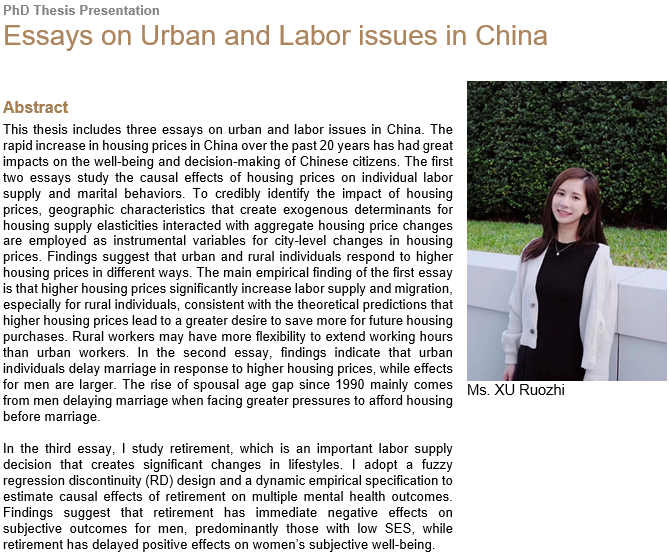Abstract
This thesis includes three essays on urban and labor issues in China. The rapid increase in housing prices in China over the past 20 years has had great impacts on the well-being and decision-making of Chinese citizens. The first two essays study the causal effects of housing prices on individual labor supply and marital behaviors. To credibly identify the impact of housing prices, geographic characteristics that create exogenous determinants for housing supply elasticities interacted with aggregate housing price changes are employed as instrumental variables for city-level changes in housing prices. Findings suggest that urban and rural individuals respond to higher housing prices in different ways. The main empirical finding of the first essay is that higher housing prices significantly increase labor supply and migration, especially for rural individuals, consistent with the theoretical predictions that higher housing prices lead to a greater desire to save more for future housing purchases. Rural workers may have more flexibility to extend working hours than urban workers. In the second essay, findings indicate that urban individuals delay marriage in response to higher housing prices, while effects for men are larger. The rise of spousal age gap since 1990 mainly comes from men delaying marriage when facing greater pressures to afford housing before marriage.
In the third essay, I study retirement, which is an important labor supply decision that creates significant changes in lifestyles. I adopt a fuzzy regression discontinuity (RD) design and a dynamic empirical specification to estimate causal effects of retirement on multiple mental health outcomes. Findings suggest that retirement has immediate negative effects on subjective outcomes for men, predominantly those with low SES, while retirement has delayed positive effects on women’s subjective well-being.

